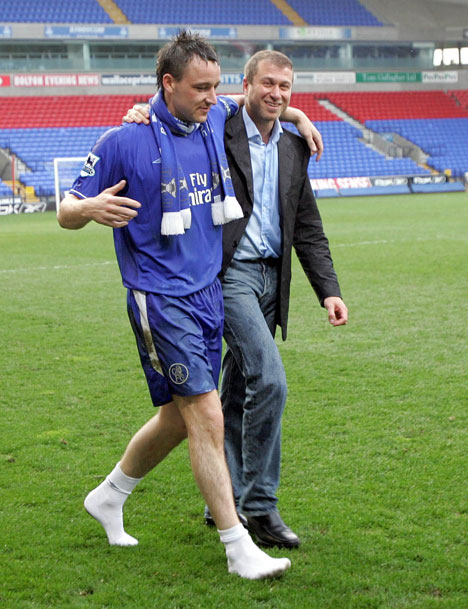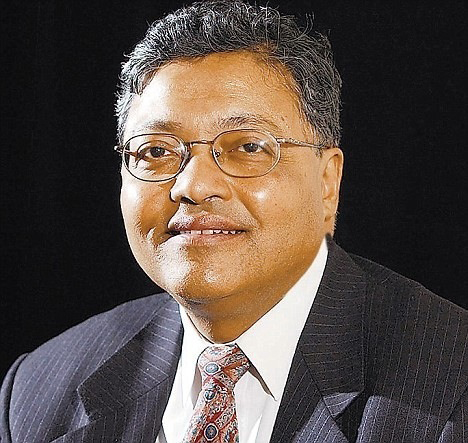This autumn could see English football face its moment of truth
That moment being when the Government appoints a regulator to run the national game. Remember, this is a Tory-led collation wedded to free enterprise and firmly believing that sports bodies should run their own sports and the Government should be a facilitator not a regulator.
Now, talk of a regulator running the game is not new. Almost exactly a year ago, Hugh Robertson, then Shadow Sports Minister, told me “the national game needs to deal with four issues. The fit and proper person test for club owners, transparency so that people looking at football clubs can see exactly what’s going on, the whole question of debt as a percentage of turnover, and governance. There are far too few people that sit on football boards, either in clubs or the organisations, that act independently. Most are part of the game’s vested interests.”
He then warned that if, “by the end of the summer the FA, the Premier League and the Football League have not come up with a proper plan to address these four issues, then the government will have to step in. One of the options would be an independent regulator to run the game.”
In the last year English football has got even worse, if anything. Not only was there the fiasco of the on-field performance by the players in South Africa last summer, but the even more shambolic performance by the men in suits in the Zurich committee rooms last winter. The World Cup bid for 2018, costing £15 million, saw the Prime Minister and the future King present themselves before the FIFA Executive with William even making a joke about his forthcoming wedding to try and attract support. The FIFA executive duly laughed and then humiliated England as never before. Just two votes including one from the Englishman on the Committee, Geoff Thompson.
So why has the Government not acted? Robertson’s argument is that he did not act after last summer as he did not want to do anything while the bid was on. Now that the Culture, Media and Sports Select Committee is looking into football, the government does not want to wade in until the inquiry is over. A whiff here of the familiar political talk that does not lead anywhere?
Possibly, except as opposed to previous inquiries, this one by the MPs does seem thorough. The great and good of football have been trooping into Portcullis House to tell the world why our national game is not working. And the noises MPs are making suggest they might go for regulation.
There is, of course, a paradox here.
The Premier League works, and works very well, but the Football Association does not. Indeed, thanks to the Premier League, England is a world stage for football every week. Even Brazil came to this country, not to play England at Wembley, but Scotland at the Emirates. While one of the main reasons why the greatest of football nations has had to play home matches in England, albeit a friendly, is because so many Brazilians now play abroad, it also shows what a stage English football provides the world. But such a stage is a creation of the English club game, not the FA.
It is, of course, ironic that the Select Committee hearings are being held in the Thatcher Room. Now, that august lady, who so changed our lives, also wanted to change football by getting football fans to have ID cards. That change was rightly considered not good and stopped. But times are now very different and should the Select Committee propose legislation to run football, then Robertson has made it clear he will look at it. And while he does not want to legislate, if that is the only way he can get football working again, he will.
There is no way of judging what the MPs will recommend and I need to add a word of caution about how far they may go.
The football adviser to the Select Committee is Rick Parry, the man who set up the Premier League, was its first chief executive and then ran Liverpool. The afternoon I met him was the very morning that the FA’s former chief executive, Ian Watmore, was explaining to MPs in the Thatcher Room of Portcullis House, why football, as Robertson says, is not working. Watmore left in March 2010, after just nine months, because there was nothing “chief or executive” about his job. In explaining the problems of the FA’s boardroom, he told MPs that there were people with too many vested interests in the professional game running the FA and the organisation needed a complete overhaul.
Parry, as consultant, cannot talk about the Committee’s work but he can talk about the past. Like back in 1991 when the old First Division went to the FA to seek its approval to break away from the Football League. Then, Sir Bert Millichip, FA chairman, could have laid down the law. But “Bert the inert” lived up to his nickname and missed a golden chance to shackle the Premier League at birth saying, “It is your league, you decide.”
And while Parry would not, and could not, give me any clue as to how the Committee was thinking, he did remind me that in the past football has seen off Government threats to appoint a regulator.
“There was debate in 1997 [with Parry still at the Premier League] about the incoming Labour Government appointing a regulator. I certainly wasn’t in favour and that was headed off. We had the Task Force instead and the Independent Football Commission, which didn’t achieve a great deal. There is a lot of debate about football governance and structures. The American-style Commissioner doesn’t work for our game.”
A clear hint here that Parry, for one, will not be advising the MPs to go down the route of regulation.
 Weighing against any such Parry advice will be the fact that MPs in their travels have had a chance to contrast English and world football, an exercise which does not make English football look good. The MPs’ travels have taken them to Germany, where they were impressed by the Bundesliga system, one where foreigners cannot just walk in and buy a club, as Roman Abramovich (pictured above with John Terry) and Sheikh Mansour have done in this country. And they have been appalled that you cannot even discover the true owners of some football clubs in this country.
Weighing against any such Parry advice will be the fact that MPs in their travels have had a chance to contrast English and world football, an exercise which does not make English football look good. The MPs’ travels have taken them to Germany, where they were impressed by the Bundesliga system, one where foreigners cannot just walk in and buy a club, as Roman Abramovich (pictured above with John Terry) and Sheikh Mansour have done in this country. And they have been appalled that you cannot even discover the true owners of some football clubs in this country.
In light of this, it will be interesting to see if they propose that we move from a free-for-all to a more regulated German-style of ownership. It will certainly be very radical if they go that far. Incidentally, Alan Sugar thinks that was a rule the FA should have brought in many years ago.
But even if they do not go that far, there is every sign that the days of the extraordinary creditors rule may be limited.
This is a legacy of the old days of football. Under this rule, clubs that go into administration have to meet football debts owed to other clubs over transfers and players wages, but not to other creditors. So the person who supplies the meat pies loses out, but not the player who may be earning a million a year. In no other area of economic activity do we allow this. Yet the richest game in this country gets this special dispensation, which considerably distorts the game.
The Treasury has tried and failed to challenge this in court, and the reason why I sense MPs may now recommend a change in law is what Robertson told me. He does not know what the MPs will recommend and is very careful not to want to try and influence them. But he said, “the creditors rule is one of the things that the Select Committee, I know, are looking at very carefully and I would be very surprised if some changes are not made.”
If that is the only change, then given all this talk of football not working, that will count as a rather minor change. However, my feeling is that the changes the MPs will propose will be more substantial and this time government, even a free market one, will have to intervene.
This autumn for football may be more than just a season when the leaves fall and the clocks go back.
Mihir Bose is one of the world’s most astute observers on politics in sport and, particularly, football. He formerly wrote for The Sunday Times and The Daily Telegraph and until recently was the BBC’s head sports editor.
